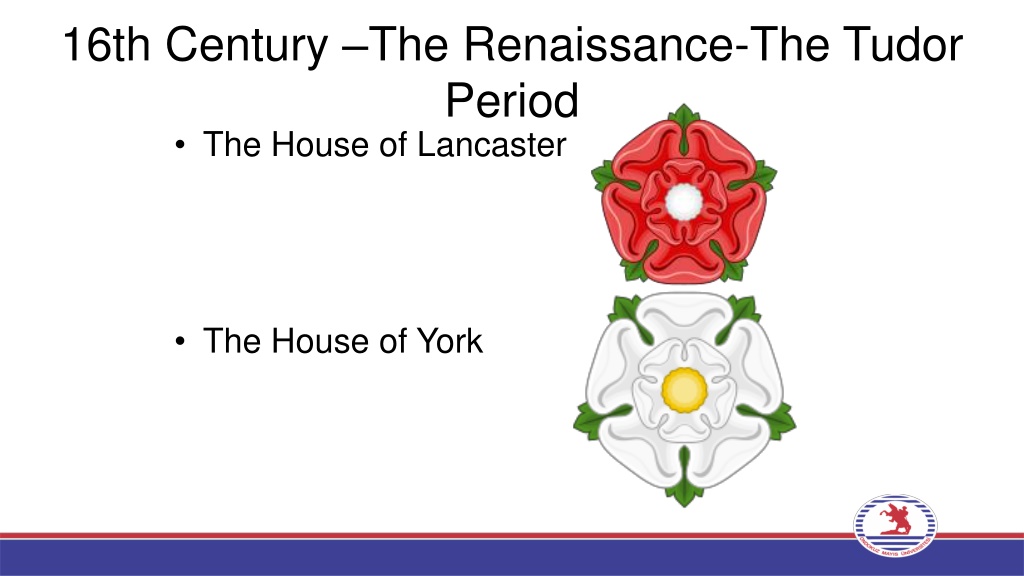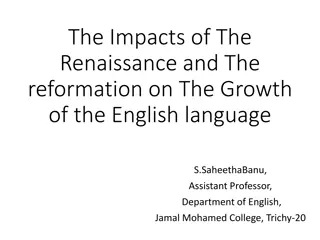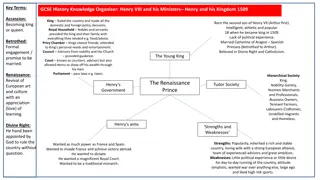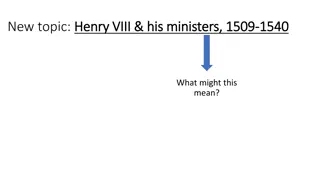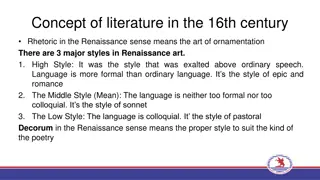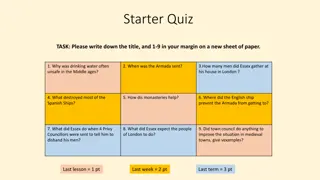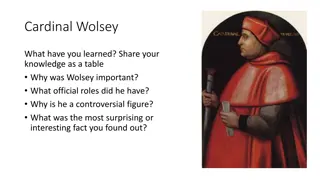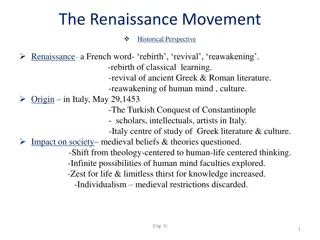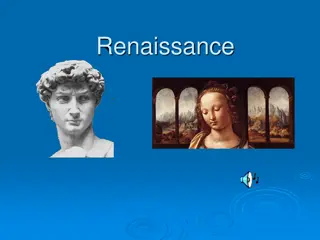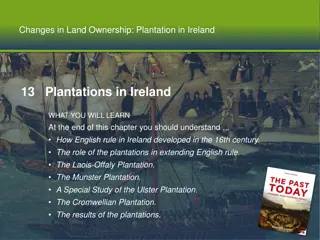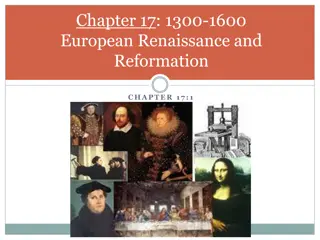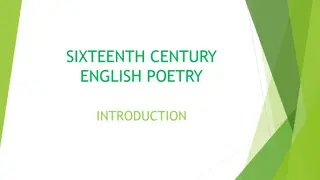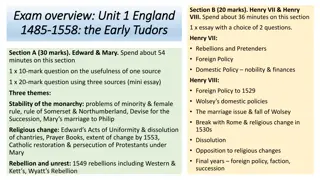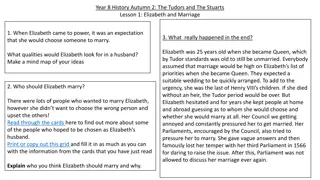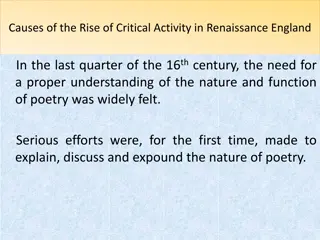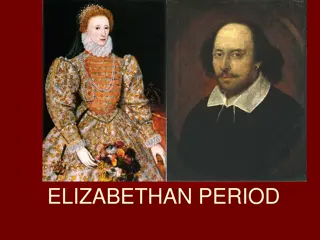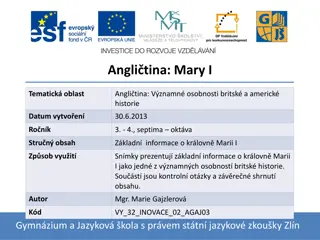The Tudor Period: 16th Century Renaissance in England
In the 16th century, the Tudor period in England marked the end of the Wars of the Roses between the Houses of Lancaster and York. Henry VII became the first Tudor king after defeating Richard III. Subsequent rulers like Henry VIII and Elizabeth I influenced the country's political and religious landscape, ushering in the Renaissance and Protestantism. From exploration to religious conflicts, this era saw significant developments that shaped English history.
Download Presentation

Please find below an Image/Link to download the presentation.
The content on the website is provided AS IS for your information and personal use only. It may not be sold, licensed, or shared on other websites without obtaining consent from the author. Download presentation by click this link. If you encounter any issues during the download, it is possible that the publisher has removed the file from their server.
E N D
Presentation Transcript
16th Century The Renaissance-The Tudor Period The House of Lancaster The House of York
16th century political and social background In 1485, the struggles between the two great feudal houses in England, the House of Lancaster and the House of York ended with the defeat of Richard III, and the first Tudor King, Henry VII came to the throne. These struggles are known as the Wars of The Roses
The defeat of Richard III The first Tudor king, Henry VII
In 1492 Columbus discovered America and in 1495 Vasco de Gama reached the Orient sailing around the Cape of Good Hope. William Caxton set up the first printing press in London
The reign of Henry VIII saw the reformation and the beginning of the Renaissance
The short reign of Edward VI witnessed the growth of Protestantism in England
The successor to the young Protestant King was his elder sister Mary Tudor. She was a Catholic. She married a Spanish king. She persecuted the Protestant and put many of them to death.
Elizabeth I ruled until 1603. When she became queen, through her political talent first united England, gave the people a very real feeling of nationality. She was excommunicated by the Pope. Her excommunication brought English people round their queen. She defeated Spanish Armada. During reign of Elizabeth I, the influences of Italian renaissance were felt in England.
Literature of the Period (Renaissance) The characteristic of this period is a rejection of medieval learning for classical learning. The most important achievement in culture is its attempt to harmonize the Christian tradition, culture with classical culture, and to lead to a new interpretation of Christianity.
Humanism in the Renaissance sense means the study of classical culture and literature. It s the study of the works dealing with the life and thought, of the language and literature of the ancient Greeks and Romans
